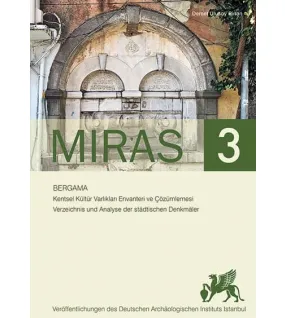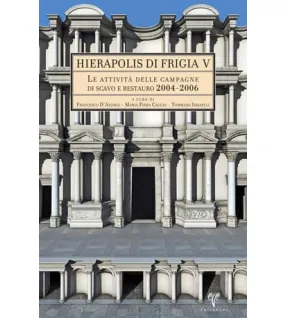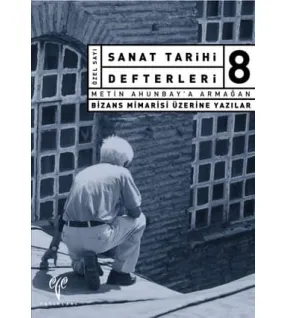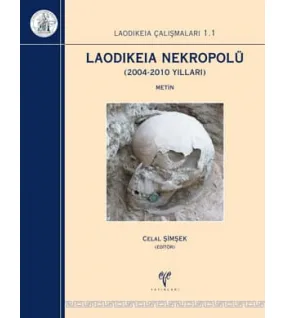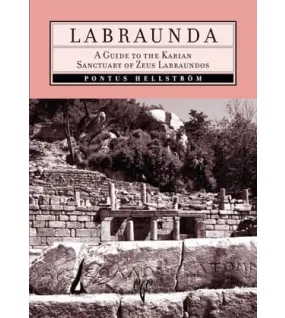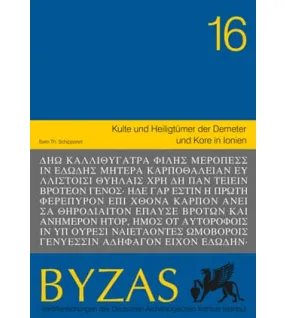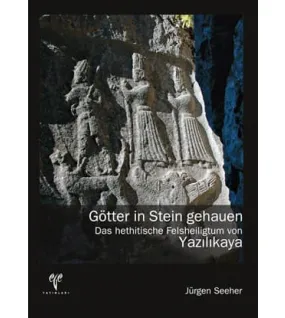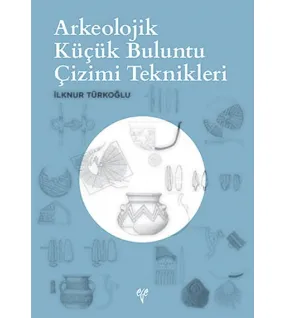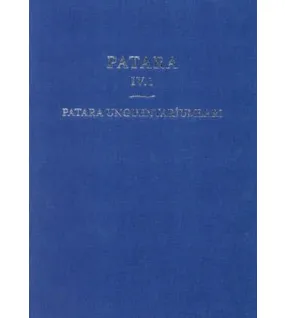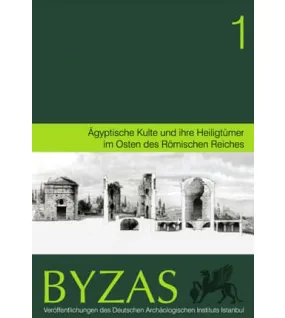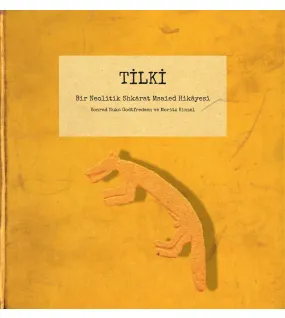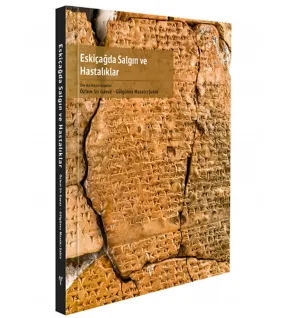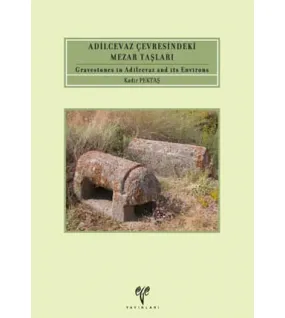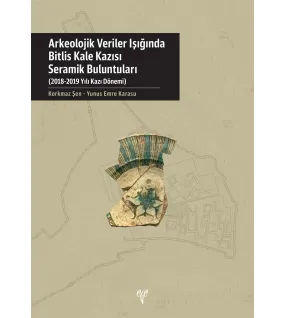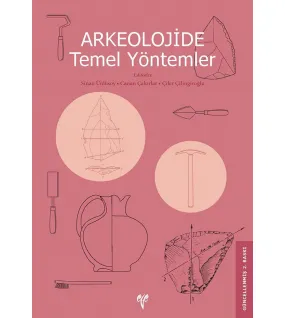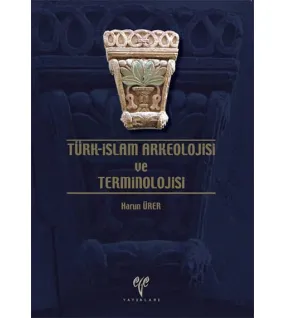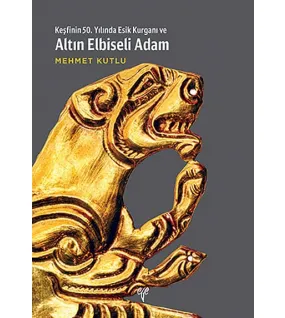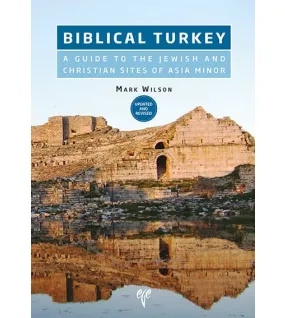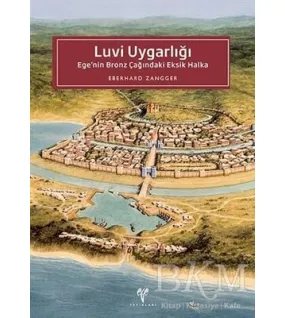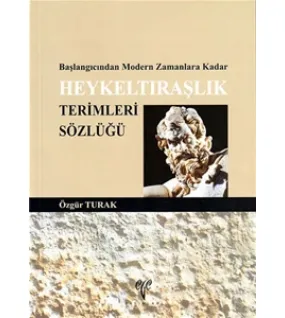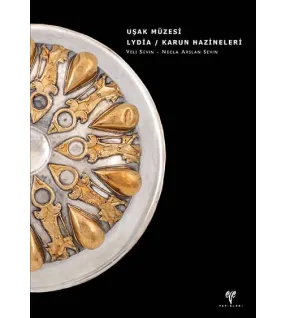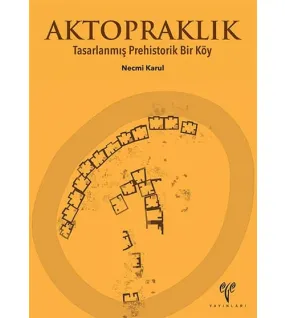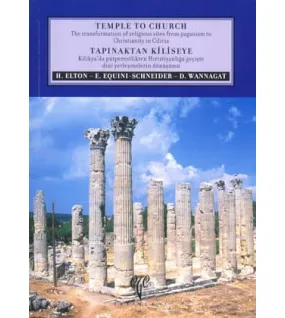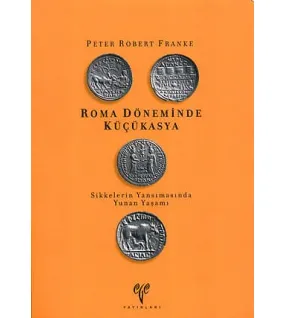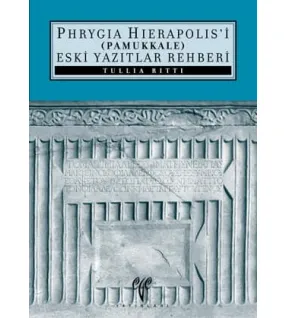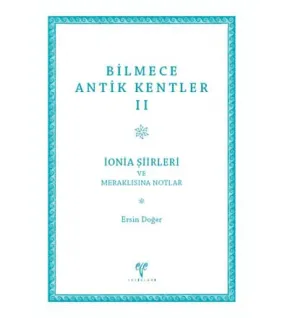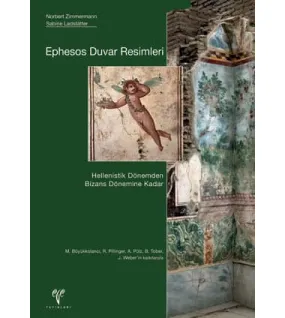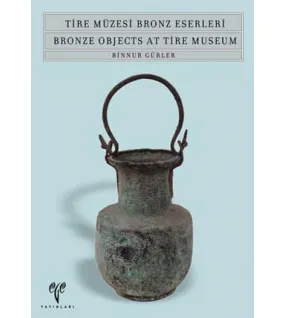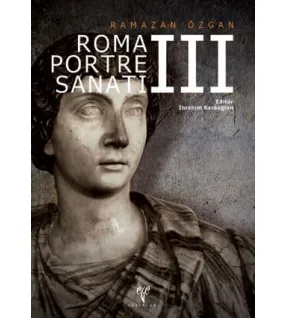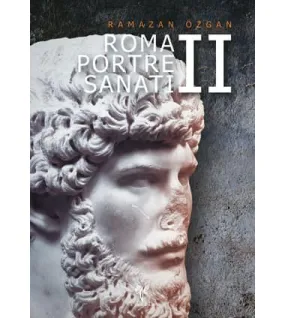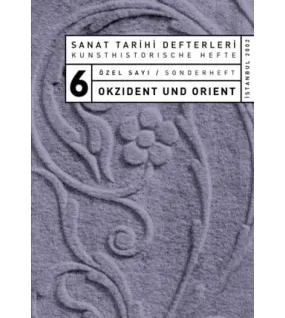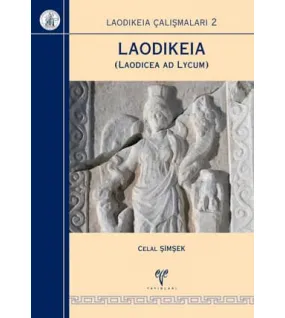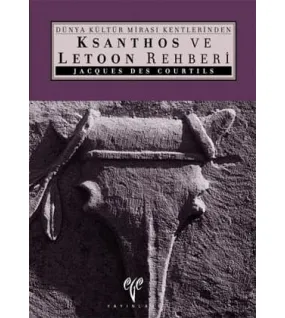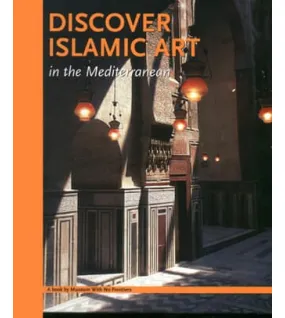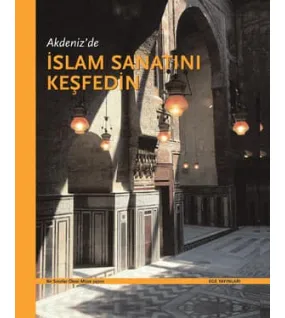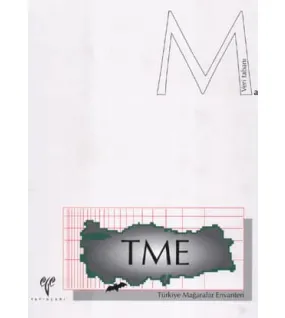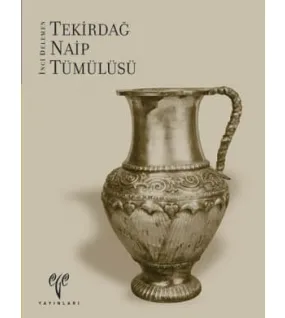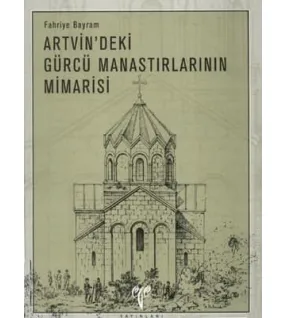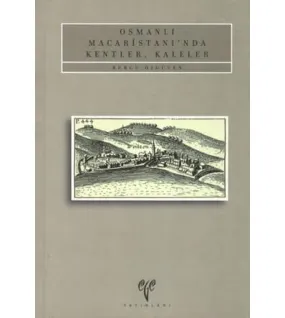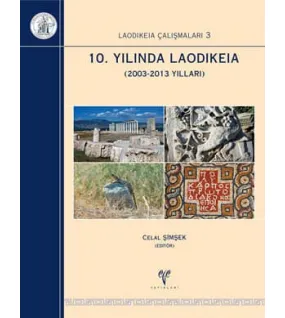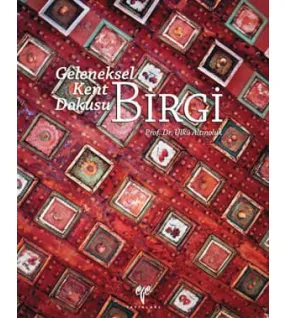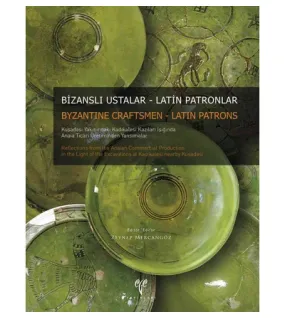
Hierapolis di Frigia XIII: Virtual Hierapolis
232 s, renkli resimler, sert kapak ciltli, DVD'li, İngilizce.
This new volume in the series dedicated to Hierapolis presents the results of an ambitious project concerning the 3D reconstructions of its main monuments and the virtual restoration of the artefacts and pictorial and mosaic decorations, present above all in the houses of the city’s aristocracy. Some of these items have already been described in previous publications, but in this volume, together with hitherto unseen images, they are part of the Virtual Tour of the city, which can also be experienced via on-line and off-line platforms, choosing from three different visitor itineraries.
As well as the specific need to study the ancient architecture by means of 3D virtual reconstructions, the creation of the Virtual Tour of Hierapolis provides an answer to the questions posed by the rising number of tourists, which now exceeds two million a year, placing the city, together with Ephesus, among the most popular archaeological sites in Turkey.
These reconstructions proved to be highly effective communication tools, enabling the viewing public to understand the appearance of the ancient buildings. Some of these virtual reconstructions were published in 2009 in the leaflet on Virtual Hierapolis, distributed to scholars and visitors. M. Limoncelli was a constant presence in the MAIER in those years, but it was only during his Research Doctorate at the Sacro Cuore Catholic University in Milan, in the years 2013-2016, that his Project was systematically fulfilled.
Contents- Preface (Francesco D’Andria)
The Virtual Hierapolis Project- Virtual Archaeology and Restoration in Hierapolis
- Sources for the virtual reconstruction of the city
- The digital surveying of monuments and architectural elements
- The reconstructive study of the monuments
- Architecture and context: the digital model and the virtual scene
- Virtual anastylosis and data correspondence models
- Analysis of space and visual perception
- Applications of Virtual Restoration
- Virtual Restoration
- Painting: the frescoes in the houses of Insula 104
- Mosaics: the floors of the houses of Insula 104
- Sculpture: the virtual recomposition of the Hades group from the Ploutonion
- Atlas of the monuments
- The representation of the monuments
- Catalogue of the monuments
1. North Frontinus Gate
2. Tomb of Flavius Zeuxis (A28) and Tomb A28c
3. Latrine
4. Plateia - shops and warehouses
5. “Tomba Bella”
6. North Agora
7. North Theatre
8. North Byzantine Gate
9. Nymphaeum of the Tritons
10. Cathedral
11. Marble Stoa
12. Ploutonion
13. Nymphaeum of the Sanctuary of Apollo
14. Portico of the Middle Terrace of the Sanctuary of Apollo
15. Monopteros
16. Temple A of the Sanctuary of Apollo
17. Temple B of the Sanctuary of Apollo
18. Portico of the Upper Terrace of the Sanctuary of Apollo
19. Insula 104
20. Theatre
21. Altar of the Dodekatheon
22. Church above the Theatre
23. St Philip’s Gate
24. Octagonal Baths
25. Tomb of St Philip
26. Church of St Philip
27. Martyrion
28. Church with Pillars
29. Gymnasium
30. South-West Byzantine Gate
31. Tomb of Tiberius Claudius Thalamos (S10)
Virtual tour of Hierapolis- On-line and off-line user platforms
Appendix- From the New Atlas of Hierapolis to the representation of the city in three dimensions: altimetric models for the study of the regional context and the reconstruction of historic landscapes (Giuseppe Scardozzi).
?References
(Tanıtım bülteninden)
Arkeolojiye dair daha fazla içerik için Arkhe Arkeoloji Dergisi ve Arkhe Kitap bölümlerini ziyaret etmeyi unutmayın.
As well as the specific need to study the ancient architecture by means of 3D virtual reconstructions, the creation of the Virtual Tour of Hierapolis provides an answer to the questions posed by the rising number of tourists, which now exceeds two million a year, placing the city, together with Ephesus, among the most popular archaeological sites in Turkey.
These reconstructions proved to be highly effective communication tools, enabling the viewing public to understand the appearance of the ancient buildings. Some of these virtual reconstructions were published in 2009 in the leaflet on Virtual Hierapolis, distributed to scholars and visitors. M. Limoncelli was a constant presence in the MAIER in those years, but it was only during his Research Doctorate at the Sacro Cuore Catholic University in Milan, in the years 2013-2016, that his Project was systematically fulfilled.
Contents
- Preface (Francesco D’Andria)
- Virtual Archaeology and Restoration in Hierapolis
- Sources for the virtual reconstruction of the city
- The digital surveying of monuments and architectural elements
- The reconstructive study of the monuments
- Architecture and context: the digital model and the virtual scene
- Virtual anastylosis and data correspondence models
- Analysis of space and visual perception
- Applications of Virtual Restoration
- Virtual Restoration
- Painting: the frescoes in the houses of Insula 104
- Mosaics: the floors of the houses of Insula 104
- Sculpture: the virtual recomposition of the Hades group from the Ploutonion
- Atlas of the monuments
- The representation of the monuments
- Catalogue of the monuments
2. Tomb of Flavius Zeuxis (A28) and Tomb A28c
3. Latrine
4. Plateia - shops and warehouses
5. “Tomba Bella”
6. North Agora
7. North Theatre
8. North Byzantine Gate
9. Nymphaeum of the Tritons
10. Cathedral
11. Marble Stoa
12. Ploutonion
13. Nymphaeum of the Sanctuary of Apollo
14. Portico of the Middle Terrace of the Sanctuary of Apollo
15. Monopteros
16. Temple A of the Sanctuary of Apollo
17. Temple B of the Sanctuary of Apollo
18. Portico of the Upper Terrace of the Sanctuary of Apollo
19. Insula 104
20. Theatre
21. Altar of the Dodekatheon
22. Church above the Theatre
23. St Philip’s Gate
24. Octagonal Baths
25. Tomb of St Philip
26. Church of St Philip
27. Martyrion
28. Church with Pillars
29. Gymnasium
30. South-West Byzantine Gate
31. Tomb of Tiberius Claudius Thalamos (S10)
Virtual tour of Hierapolis
- On-line and off-line user platforms
- From the New Atlas of Hierapolis to the representation of the city in three dimensions: altimetric models for the study of the regional context and the reconstruction of historic landscapes (Giuseppe Scardozzi).
(Tanıtım bülteninden)
Arkeolojiye dair daha fazla içerik için Arkhe Arkeoloji Dergisi ve Arkhe Kitap bölümlerini ziyaret etmeyi unutmayın.
Hierapolis di Frigia XIII: Virtual Hierapolis
- Ürün Kodu: KP0224
Hierapolis di Frigia XIII: Virtual Hierapolis
232 s, renkli resimler, sert kapak ciltli, DVD'li, İngilizce.
This new volume in the series dedicated to Hierapolis presents the results of an ambitious project concerning the 3D reconstructions of its main monuments and the virtual restoration of the artefacts and pictorial and mosaic decorations, present above all in the houses of the city’s aristocracy. Some of these items have already been described in previous publications, but in this volume, together with hitherto unseen images, they are part of the Virtual Tour of the city, which can also be experienced via on-line and off-line platforms, choosing from three different visitor itineraries.
As well as the specific need to study the ancient architecture by means of 3D virtual reconstructions, the creation of the Virtual Tour of Hierapolis provides an answer to the questions posed by the rising number of tourists, which now exceeds two million a year, placing the city, together with Ephesus, among the most popular archaeological sites in Turkey.
These reconstructions proved to be highly effective communication tools, enabling the viewing public to understand the appearance of the ancient buildings. Some of these virtual reconstructions were published in 2009 in the leaflet on Virtual Hierapolis, distributed to scholars and visitors. M. Limoncelli was a constant presence in the MAIER in those years, but it was only during his Research Doctorate at the Sacro Cuore Catholic University in Milan, in the years 2013-2016, that his Project was systematically fulfilled.
Contents- Preface (Francesco D’Andria)
The Virtual Hierapolis Project- Virtual Archaeology and Restoration in Hierapolis
- Sources for the virtual reconstruction of the city
- The digital surveying of monuments and architectural elements
- The reconstructive study of the monuments
- Architecture and context: the digital model and the virtual scene
- Virtual anastylosis and data correspondence models
- Analysis of space and visual perception
- Applications of Virtual Restoration
- Virtual Restoration
- Painting: the frescoes in the houses of Insula 104
- Mosaics: the floors of the houses of Insula 104
- Sculpture: the virtual recomposition of the Hades group from the Ploutonion
- Atlas of the monuments
- The representation of the monuments
- Catalogue of the monuments
1. North Frontinus Gate
2. Tomb of Flavius Zeuxis (A28) and Tomb A28c
3. Latrine
4. Plateia - shops and warehouses
5. “Tomba Bella”
6. North Agora
7. North Theatre
8. North Byzantine Gate
9. Nymphaeum of the Tritons
10. Cathedral
11. Marble Stoa
12. Ploutonion
13. Nymphaeum of the Sanctuary of Apollo
14. Portico of the Middle Terrace of the Sanctuary of Apollo
15. Monopteros
16. Temple A of the Sanctuary of Apollo
17. Temple B of the Sanctuary of Apollo
18. Portico of the Upper Terrace of the Sanctuary of Apollo
19. Insula 104
20. Theatre
21. Altar of the Dodekatheon
22. Church above the Theatre
23. St Philip’s Gate
24. Octagonal Baths
25. Tomb of St Philip
26. Church of St Philip
27. Martyrion
28. Church with Pillars
29. Gymnasium
30. South-West Byzantine Gate
31. Tomb of Tiberius Claudius Thalamos (S10)
Virtual tour of Hierapolis- On-line and off-line user platforms
Appendix- From the New Atlas of Hierapolis to the representation of the city in three dimensions: altimetric models for the study of the regional context and the reconstruction of historic landscapes (Giuseppe Scardozzi).
?References
(Tanıtım bülteninden)
Arkeolojiye dair daha fazla içerik için Arkhe Arkeoloji Dergisi ve Arkhe Kitap bölümlerini ziyaret etmeyi unutmayın.
As well as the specific need to study the ancient architecture by means of 3D virtual reconstructions, the creation of the Virtual Tour of Hierapolis provides an answer to the questions posed by the rising number of tourists, which now exceeds two million a year, placing the city, together with Ephesus, among the most popular archaeological sites in Turkey.
These reconstructions proved to be highly effective communication tools, enabling the viewing public to understand the appearance of the ancient buildings. Some of these virtual reconstructions were published in 2009 in the leaflet on Virtual Hierapolis, distributed to scholars and visitors. M. Limoncelli was a constant presence in the MAIER in those years, but it was only during his Research Doctorate at the Sacro Cuore Catholic University in Milan, in the years 2013-2016, that his Project was systematically fulfilled.
Contents
- Preface (Francesco D’Andria)
- Virtual Archaeology and Restoration in Hierapolis
- Sources for the virtual reconstruction of the city
- The digital surveying of monuments and architectural elements
- The reconstructive study of the monuments
- Architecture and context: the digital model and the virtual scene
- Virtual anastylosis and data correspondence models
- Analysis of space and visual perception
- Applications of Virtual Restoration
- Virtual Restoration
- Painting: the frescoes in the houses of Insula 104
- Mosaics: the floors of the houses of Insula 104
- Sculpture: the virtual recomposition of the Hades group from the Ploutonion
- Atlas of the monuments
- The representation of the monuments
- Catalogue of the monuments
2. Tomb of Flavius Zeuxis (A28) and Tomb A28c
3. Latrine
4. Plateia - shops and warehouses
5. “Tomba Bella”
6. North Agora
7. North Theatre
8. North Byzantine Gate
9. Nymphaeum of the Tritons
10. Cathedral
11. Marble Stoa
12. Ploutonion
13. Nymphaeum of the Sanctuary of Apollo
14. Portico of the Middle Terrace of the Sanctuary of Apollo
15. Monopteros
16. Temple A of the Sanctuary of Apollo
17. Temple B of the Sanctuary of Apollo
18. Portico of the Upper Terrace of the Sanctuary of Apollo
19. Insula 104
20. Theatre
21. Altar of the Dodekatheon
22. Church above the Theatre
23. St Philip’s Gate
24. Octagonal Baths
25. Tomb of St Philip
26. Church of St Philip
27. Martyrion
28. Church with Pillars
29. Gymnasium
30. South-West Byzantine Gate
31. Tomb of Tiberius Claudius Thalamos (S10)
Virtual tour of Hierapolis
- On-line and off-line user platforms
- From the New Atlas of Hierapolis to the representation of the city in three dimensions: altimetric models for the study of the regional context and the reconstruction of historic landscapes (Giuseppe Scardozzi).
(Tanıtım bülteninden)
Arkeolojiye dair daha fazla içerik için Arkhe Arkeoloji Dergisi ve Arkhe Kitap bölümlerini ziyaret etmeyi unutmayın.
- Marka: Ege Yayınları
- Görüntülenme Sayısı: 2545
- Stok Durumu: 5

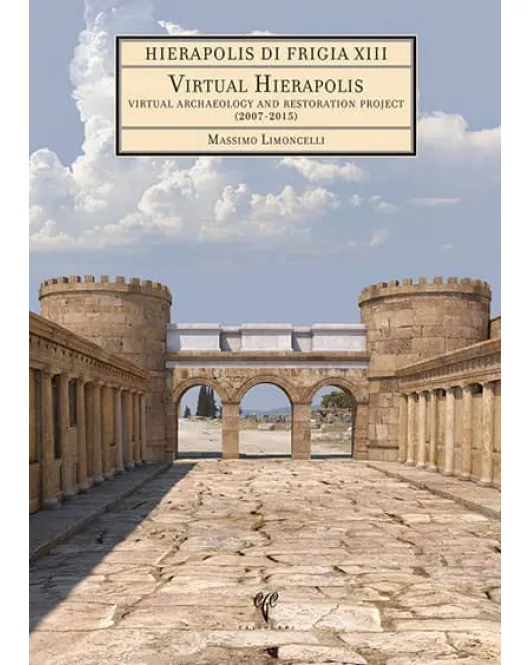

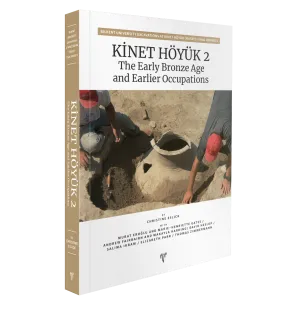
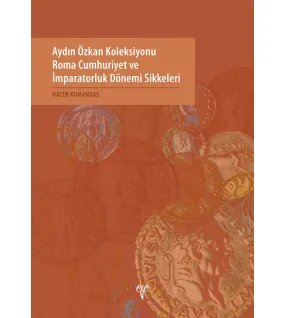
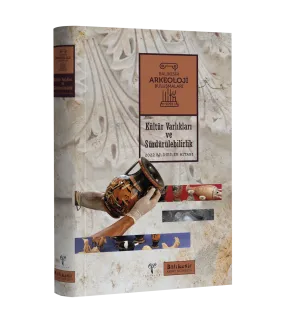
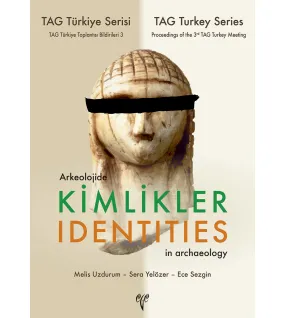
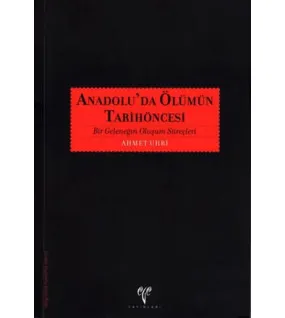
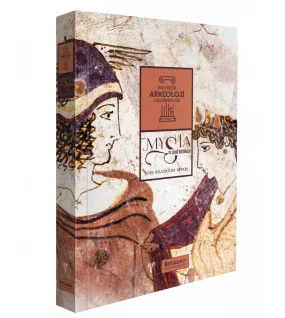

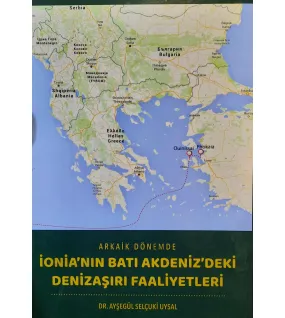
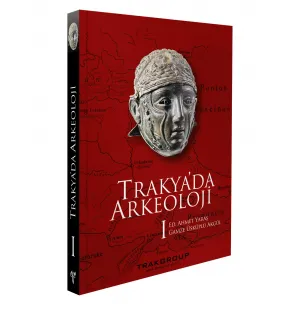
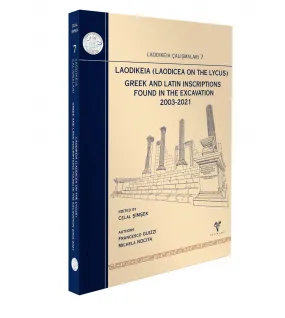
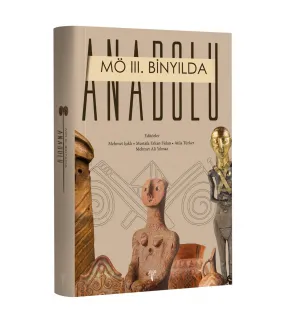
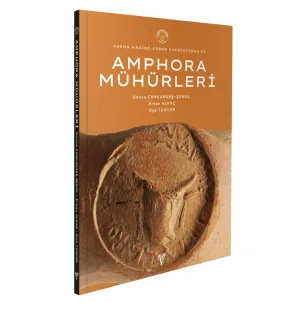
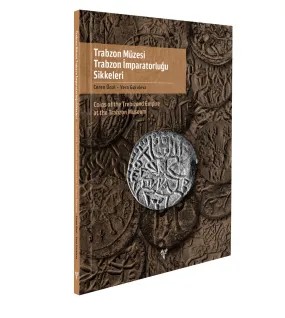
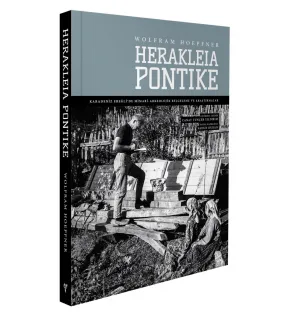
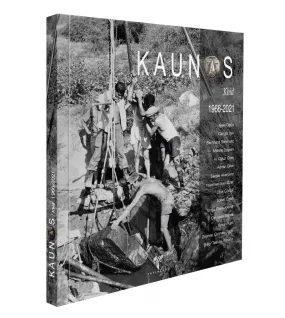
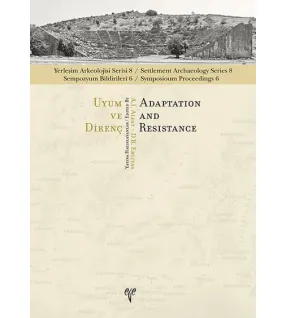
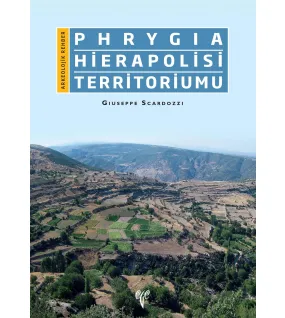
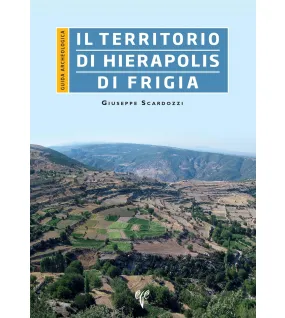
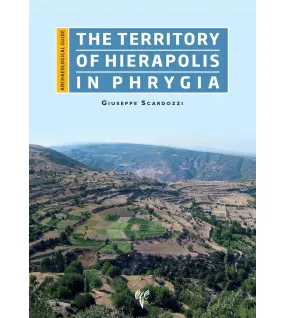

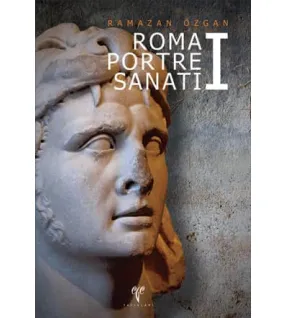
-285x318.webp)
